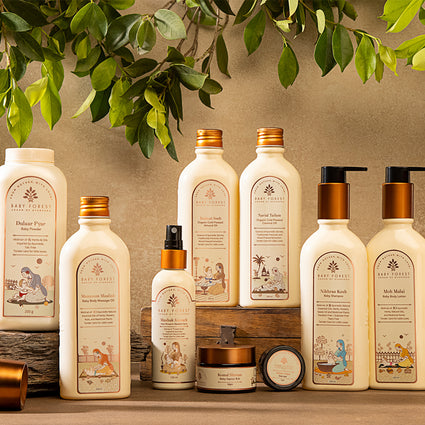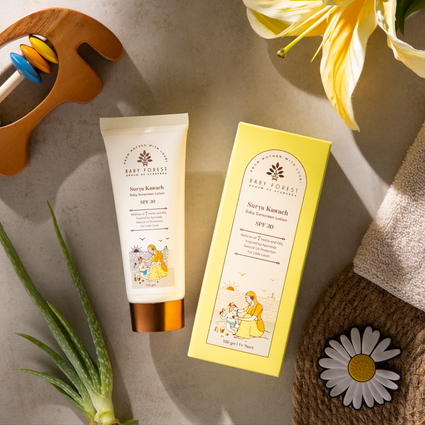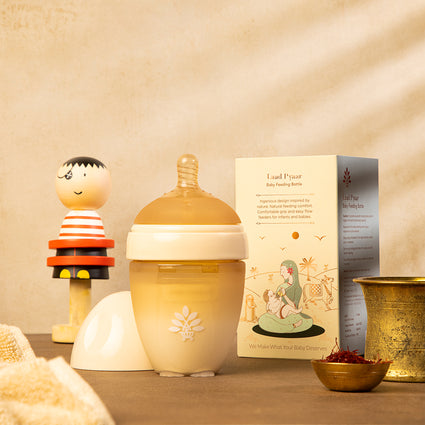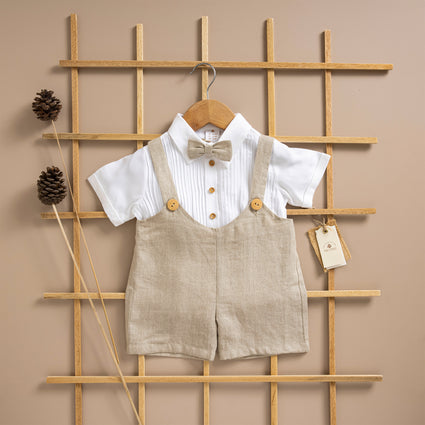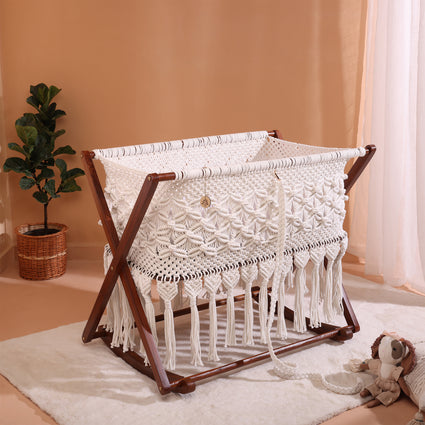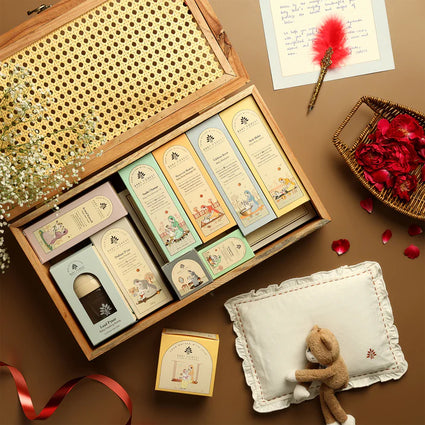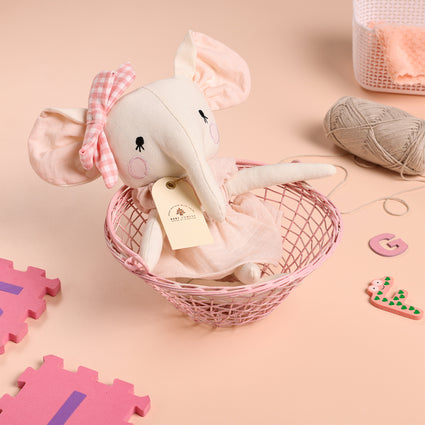Baby Care & Parenting Blogs

How to Protect Your Baby from Mosquito Bites
As a parent, your baby's safety and comfort are always top priorities. One of the biggest worries for moms, especially with newborns and young babies, is how to protect them from pesky mosquitoes and other insects. These tiny intruders don't just cause itchy bites; they can also pose health risks to your little one.
Unlike other challenges, like avoiding cold weather or harsh winds, mosquitoes seem to find their way everywhere-indoors and outdoors alike. It can feel overwhelming, but with the right strategies and tips, you can keep these pests away and give your baby a safe, cosy environment to thrive.
Why Mosquitoes Are a Bigger Problem for Babies
Mosquitoes are more than just a nuisance. They can carry diseases like dengue, malaria, and Zika virus. Babies are particularly vulnerable because their immune systems are still developing. Plus, their skin is more sensitive, making them prone to irritation and allergic reactions from bites.
Unlike adults, babies can't swat away mosquitoes or tell us when they're uncomfortable. That's why it's so important to be proactive in preventing mosquito bites for babies. Awareness is the first step to prevention.
Natural Mosquito Repellent Methods
If you're looking for organic and chemical-free ways to prevent mosquito bites for babies, nature has got you covered! Here are some tried-and-true methods:
- Essential Oils: Oils like citronella, eucalyptus, and lavender are excellent natural repellents. Mix a few drops with a carrier oil like coconut and apply to areas near your baby (not directly on their skin).
- Bhustarah (Lemongrass Oil): Known for its strong mosquito-repelling properties, lemongrass oil can be a great addition to your natural defence strategy.
- Cedarwood Oil: This oil is not only a mosquito repellent but also has a calming effect, making it ideal for babies.
- Lavender Oil: Besides repelling mosquitoes, lavender oil soothes and relaxes babies, ensuring a peaceful environment.
- Neem Leaves: Burning dried neem leaves can repel mosquitoes naturally. Ensure the smoke doesn't reach your baby directly.
- Garlic and Lemon Spray: A homemade mixture of garlic and lemon boiled in water can be sprayed around windows and doors. It's a safe and effective barrier.
- Herbal Mosquito Repellent Patches: Look for patches made from natural ingredients. These can be placed on clothes, strollers, or cribs.
Natural solutions are great because they're gentle and safe. This is why Mashak Kawach Baby Mosquito Repellant Spray is a natural and safe solution for babies. It contains ingredients like lemongrass, cedarwood, lavender, citronella, eucalyptus etc. known for their strong mosquito-repelling properties.
Physical Barriers for Extra Protection
Sometimes the simplest solutions are the best. Physical barriers are a foolproof way to protect newborns from mosquitoes without relying on sprays or lotions.
- Mosquito Nets: Use fine mesh mosquito nets over cribs, bassinets, and strollers. This is a classic method and highly effective.
- Clothing: Dress your baby in lightweight, long-sleeved tops and pants. Opt for breathable fabrics like cotton to keep them comfortable while covered.
- Window Screens: Ensure all windows in your home are fitted with tight screens to keep mosquitoes out.
These barriers work wonders in creating a physical shield between your little one and those pesky mosquitoes.
Home Environment Control
Your home is your sanctuary, and you can make it mosquito-free with a few smart adjustments:
- Eliminate Standing Water: Mosquitoes breed in stagnant water. Check flowerpots, drains, and even pet bowls regularly.
- Use Fans: Mosquitoes are weak fliers. Placing a fan near your baby's crib can keep them at bay.
- Plant Mosquito-Repelling Herbs: Basil, lemongrass, and marigolds are natural repellents that can be grown indoors or in your garden.
- Natural Candles and Incense: Citronella candles or sandalwood incense can add a calming vibe while keeping mosquitoes away. Ensure proper ventilation if used indoors.
A mosquito-free home is a safe home. Small steps can lead to big peace of mind.
Safe Use of Mosquito Repellents
When considering repellents, safety is paramount. Here's how to use them wisely to protect newborns from mosquitoes:
- Choose Baby-Safe Products: Look for repellents specifically designed for babies. These often have lower concentrations of active ingredients.
- Avoid Direct Application: Never apply repellents directly to a baby's skin. Instead, apply it to your hands and then to clothing or other surfaces.
- Follow the Label: Always read and follow instructions carefully. More is not better when it comes to repellents.
Using repellents the right way ensures they're effective without causing harm.
Tips for Outdoors
Heading outside? Here's how to keep mosquitoes away from a baby during outdoor adventures:
- Timing: Avoid going out during peak mosquito activity hours, usually at dawn and dusk.
- Portable Nets: Bring a portable mosquito net for strollers or baby carriers.
- Cover Exposed Skin: Use lightweight, full-coverage clothing to minimize exposed areas.
- Stay Away from Mosquito Hotspots: Avoid areas near stagnant water or dense foliage.
Taking these precautions ensures your outdoor time is fun and worry-free.
When to Seek Medical Attention
Despite your best efforts, mosquito bites might still happen. Watch out for these signs that may need a doctor's attention:
- Allergic Reactions: Swelling, redness, or itching that doesn't subside.
- Fever: A sudden fever post-bite could indicate an infection.
- Unusual Behavior: If your baby seems unusually fussy or lethargic, consult a paediatrician.
Prompt action can make all the difference if an issue arises.
Conclusion
Mosquitoes don't have to ruin your baby's comfort or your peace of mind. By using a combination of natural methods, physical barriers, and safe repellents, you can effectively prevent mosquito bites for babies. Whether you're indoors or outdoors, these strategies will help you stay one step ahead of those pesky bugs.
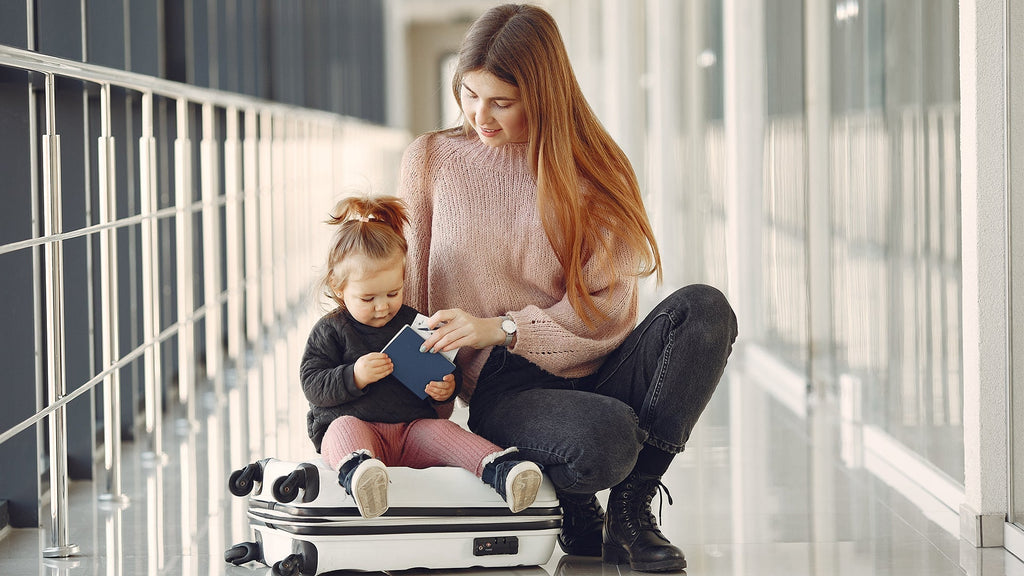
Top 10 Things to Know When Flying with a Baby
Flying with a baby can be a daunting experience, especially for first-time parents. However, you can make the trip easier and more enjoyable for you and your child if you prepare and follow these helpful guidelines. Here are the top 10 things to know when flying with a baby.
1. Plan Ahead
Planning is crucial when flying with a baby. Book your tickets early to ensure you get the best seats for your family. If possible, choose flights that align with your baby’s nap schedule. This can help make the flight more manageable. Also, inform the airline if you need a bassinet or any other special accommodations.
2. Pack Smart
Less is more when it comes to packing, but you still need to ensure you have all the essentials. Here’s a checklist to help you pack smartly:
- Diapers: Pack enough diapers for the flight duration, plus a few extras.
- Baby Wipes: Essential for diaper changes and cleaning up spills.
- Clothing: Pack extra clothes for your baby like a baby bodysuit and a change of clothes for yourself.
- Blanket: A soft blanket can be useful for warmth and comfort.
- Feeding Supplies: Whether you’re breastfeeding, bottle-feeding, or have started solids, pack enough food and baby feeding bottles for the trip.
3. Arrive Early
Arriving at the airport early gives you ample time to handle unexpected situations. With a baby in tow, you’ll need extra check-in, security checks, and boarding time. Arriving early helps reduce stress and gives you time to deal with last-minute issues.
4. Choose the Right Seats
Selecting the right seats can make a significant difference in your travel experience. If possible, opt for bulkhead seats as they offer more legroom. Some airlines provide bassinets for babies in these seats, which can be a lifesaver on long flights. If bulkhead seats are unavailable, consider booking a window seat so you can have more privacy.
5. Keep Your Baby Comfortable
Comfort is key when flying with a baby. Dress your baby in comfortable, layered clothing to easily adjust to changing temperatures. A familiar blanket or toy can provide comfort and security. During takeoff and landing, feed your baby or offer a pacifier to help with ear pressure changes.
6. Manage Feeding and Hydration
Keeping your baby well-fed and hydrated is crucial. If you’re breastfeeding, take advantage of feeding during takeoff and landing to help with ear pressure. If you’re bottle-feeding, pack extra formula or milk. Don’t forget to bring snacks if your baby is old enough for solids. It’s also important to keep yourself hydrated, especially if you’re breastfeeding.
7. Navigating Security
Navigating airport security with a baby requires a bit of patience. You’ll need to carry your baby through the metal detector, so it’s helpful to use a baby carrier instead of a stroller. Liquids such as breast milk, formula, and baby food are allowed in reasonable quantities but will need to be screened separately. Be prepared for additional security checks for these items.
8. Handling Layovers
Layovers can be challenging with a baby, but with a little planning, they can be manageable. Choose airports that offer family-friendly amenities such as nursing rooms and play areas. Use layover time to feed, change diapers, and let your baby stretch. If the layover is long, find a quiet corner where your baby can nap.
9. Entertainment and Distraction
Keeping your baby entertained during the flight is essential to avoid fussiness. Pack a few of your baby’s favorite toys and introduce a new toy to capture their interest. Singing songs, reading books, and playing simple games can also help distract your baby. For older babies, a tablet with pre-downloaded baby-friendly videos or apps can be a great source of entertainment.
10. Stay Calm and Flexible
Traveling with a baby can be unpredictable, and things might not always go as planned. Staying calm and flexible is crucial. Babies can pick up on your stress, so try to stay relaxed. If your baby cries or becomes fussy, remember that it’s normal and other passengers are usually understanding. Focus on comforting your baby, and don’t be afraid to ask the flight attendants for assistance if needed.
Additional Tips
-
Travel Documents
Ensure you have all necessary travel documents for your baby, including a passport, if traveling internationally. -
Health Check
Consult your pediatrician before flying, especially if your baby has any health issues or if it’s your first time flying with them. -
Sanitization
Airplanes can be germ hotspots. Bring hand sanitizer and disinfectant wipes to clean surfaces around your seat. -
Car Seat
If you’ve purchased a seat for your baby, consider bringing an FAA-approved car seat for added safety and comfort. -
Boarding Last
Some airlines allow families with young children to board early. However, boarding last can be beneficial to minimize the time your baby spends on the plane.
Flying with a baby can be challenging, but with careful planning and a positive mindset, it can also be a rewarding experience. Remember, the key to a successful flight is preparation, patience, and staying flexible. Safe travels!
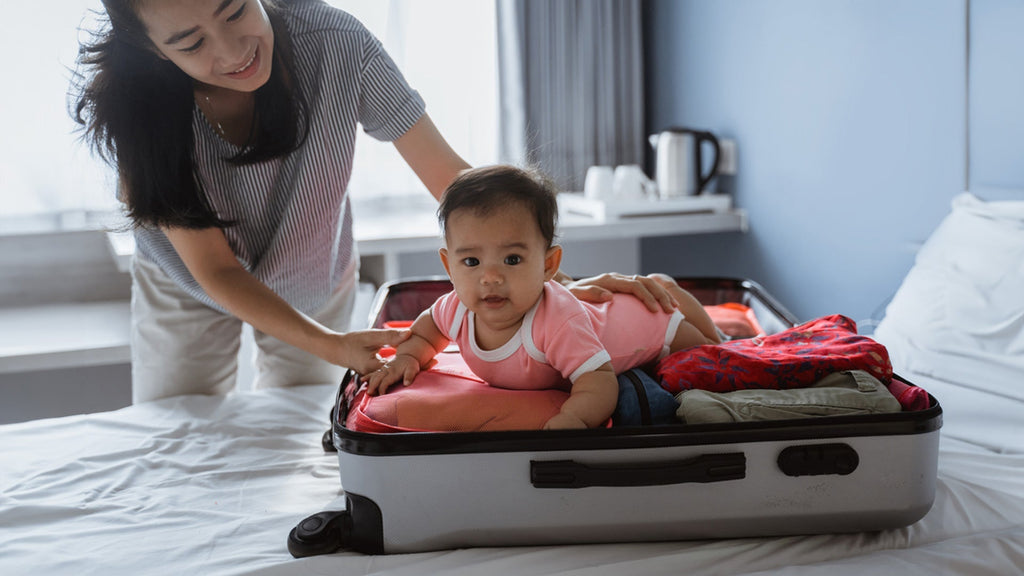
Baby on Board: Essential Tips for Traveling with Your Infant
The traveler in you must be eager to take a vacation with your infant. Once you've decided to take the plunge and bring your tiny tot along on your vacation adventure, there's much planning and packing ahead. As a new parent, it's natural to have questions. This guide is your go-to resource, designed to not only make this trip doable but downright delightful for both you and your little co-traveler. Get ready for insider tips on planning, packing, and feeding, all geared toward ensuring a smooth and enjoyable journey with your precious one.
When is the best time to travel with a newborn?
Most pediatricians recommend waiting until after the baby's first round of immunizations before traveling with the baby. It's always best to consult with their pediatrician to determine the best time for travel. They'll help you decide based on your baby's shot schedule and how they're doing health-wise. It's a smart move to make sure your little one stays healthy and safe during those early travel adventures.
Planning Your Trip
Now, let's start with the nitty-gritty of planning. Think about your journey—how you're getting there, how long it will take, and what kind of fun awaits you at your destination. If you're catching a flight, check out the airline's guidelines on traveling with infants. Pro tip: Plan your trip schedule around your little one's nap and feeding times to keep stress levels in check.
And remember to look out for baby-friendly spots at your destination. A little research now means less stress later. Look for accommodations that welcome tiny guests and make a mental note of the nearest healthcare facilities, just in case.
Newborn Feeding on the Go
One essential aspect to consider is feeding your baby on the go. Whether on a road trip, flying to a new destination, or exploring a city, planning your baby's meals can significantly reduce stress and ensure a comfortable experience for you and your little traveler.
When you're on a journey with your little one, the choice of feeding accessories can make a great difference in your overall travel experience. Baby Forest's Laad Pyaar feeding bottle has a spill-proof feature and easy-to-use functionality, making it an ideal companion for those unpredictable travel moments when your hungry baby can't wait. Just remember to carry extra bibs, wipes, and a small blanket to make feeding time more comfortable for both of you. By thinking ahead and having the right gear, you can ensure your baby stays well-nourished and content on your travel adventures.
What other essentials should you pack for your newborn?
You can start by categorizing items based on your baby's essential needs. For newborn feeding, include formula, feeding bottles, and portable highchairs. When it comes to diapering, ensure you have an adequate supply of diapers, baby wipes, and diaper rash cream. You should plan for clothing changes with spare outfits and consider the climate of your destination so that you can pack accordingly.
For personal care, include baby products such as baby shampoo, lotion, and a baby face cream for that extra layer of skin protection. Remember health and safety items, like necessary medications and a compact first aid kit. Adding a few familiar toys or comfort items from home can also provide a sense of security for your little one.
Additional Tips for Smooth Travel with Your Baby
Plan Ahead: Create a detailed checklist covering all your baby's needs, including feeding supplies, and baby products like diapers, clothing, and health essentials. This planning ensures you're well-prepared for any situation that may arise.
Flexible Itinerary: Be open to adapting your itinerary to your baby's schedule. Plan for breaks and rest stops to accommodate feeding and nap times. A more relaxed program reduces stress for both parents and babies.
Travel During Sleep Time: If possible, plan your travel during your baby's usual sleep times. This can result in a more peaceful journey, as your baby may sleep through a significant portion of the trip.
Pack Light but Smart: While it's tempting to bring everything from home, packing efficiently is key. Prioritize essentials and consider the climate of your destination.
Entertainment on the Go: Pack a few favorite toys, books, or comfort items to keep your baby entertained during the journey. A familiar item can provide comfort in new environments.
Choose Baby-Friendly Accommodations: When booking accommodations, look for baby-friendly options. This might include hotels with cribs, kitchenettes for preparing baby food, and proximity to amenities like parks or baby-friendly attractions.
Health Precautions: Bring a basic first aid kit tailored to your baby's needs. Familiarize yourself with local healthcare resources at your destination.
Patience is everything: Traveling with a baby can be unpredictable. Exercise patience and remain calm when faced with unexpected challenges. A positive attitude goes a long way in making the journey enjoyable for everyone.
Conclusion
To simplify things, create a checklist to ensure you remember everything. Start with the basics, such as a feeding bottle, baby skincare products, baby wipes, diapers, and so on. Planning your trip will help you relax and prepare you for any problems. Yet, let's face it – not every detail will unfold exactly as expected, and that's perfectly okay. Babies have a way of keeping things delightfully unpredictable. So, while planning is key, be open to the unexpected. Patience becomes your travel ally, so embrace spontaneity and stay adaptable.



